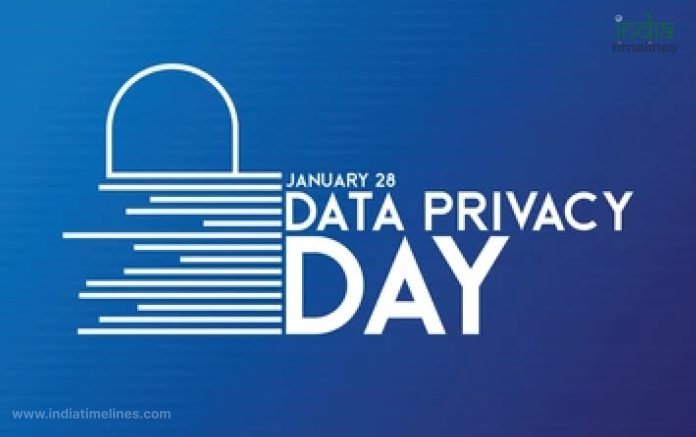
Data Privacy Day, observed annually on January 28th, holds a pivotal place in our digitally interconnected world. In the following sections, we’ll delve into the history of this significant day, its utmost importance, and how you can actively participate in celebrating it.
In the era of constant connectivity and digital transactions, Data Privacy Day stands as a beacon of awareness and responsibility. It serves as a reminder that our personal information is a valuable asset that deserves protection. As we navigate the intricacies of the digital age, understanding the history and significance of Data Privacy Day becomes crucial.
History of Data Privacy Day
Origins and Establishment
The roots of Data Privacy Day trace back to the European Union’s Data Protection Day, established in 2007. The Council of Europe designated this day to commemorate the signing of Convention 108, the first legally binding international treaty dealing with privacy and data protection. The United States officially recognized the day in 2009, renaming it Data Privacy Day.
Evolution Over the Years
Over the years, Data Privacy Day has evolved to address the dynamic challenges posed by technological advancements. Initially focused on promoting awareness, the day now serves as a platform to discuss emerging threats, legislative developments, and the need for a collective commitment to data privacy.
Visit Us to Know More Updates: https://www.indiatimelines.com
Significance of Data Privacy
Protection of Personal Information
At the core of Data Privacy Day is the safeguarding of personal information. In an age where data breaches are on the rise, individuals must be proactive in protecting their sensitive data from malicious actors seeking unauthorized access.
Impact on Individuals and Businesses
The significance of data privacy extends beyond individual concerns. Businesses also bear the responsibility of ensuring the confidentiality and integrity of customer data. A breach not only harms individuals but can have severe consequences for the reputation and trustworthiness of organizations.
Current State of Data Privacy
Recent Data Breaches and Their Consequences
Recent high-profile data breaches have highlighted the vulnerability of even the most secure systems. The fallout from such incidents emphasizes the need for constant vigilance and proactive measures in the realm of data security.
Regulatory Measures in Place
Governments worldwide are responding to the increasing threats by implementing robust data protection regulations. The General Data Protection Regulation (GDPR) in Europe and similar laws in other regions underscore the global commitment to securing personal information.
Why Data Privacy Day Matters in 2024
Technological Advancements and Their Implications
In 2024, we find ourselves amidst rapid technological advancements, from artificial intelligence to the Internet of Things. These innovations bring unprecedented conveniences but also pose new challenges to data privacy. Data Privacy Day serves as a checkpoint to assess and address these implications.
Growing Concerns Over Data Security
The increasing digitization of personal and professional aspects of life raises concerns about data security. Individuals and organizations alike are recognizing the need to fortify their digital defenses against evolving threats.
How to Celebrate Data Privacy Day
Raising Awareness in Your Community
Participating in local events, discussions, and workshops is a powerful way to raise awareness about data privacy. Engaging with your community fosters a collective commitment to responsible online behavior.
Best Practices for Safeguarding Personal Information
Simple yet effective measures like using strong, unique passwords, regularly updating software, and being cautious about sharing personal information online contribute significantly to personal data security.
Tips for Online Safety
Securing Social Media Accounts
With social media being an integral part of our lives, securing these accounts becomes paramount. Adjust privacy settings, be mindful of what you share, and regularly review third-party app permissions.
Choosing Strong Passwords and Using Two-Factor Authentication
The age-old advice of using strong, unique passwords still holds true. Couple this with two-factor authentication for an added layer of security, ensuring that even if a password is compromised, access remains restricted.
Educational Initiatives
Promoting Data Privacy Education in Schools and Workplaces
Institutions play a pivotal role in shaping attitudes toward data privacy. Promoting educational initiatives in schools and workplaces instills a culture of awareness and responsible digital citizenship.
Training Programs for Individuals and Organizations
Continuous learning is key in the ever-evolving landscape of data privacy. Training programs for both individuals and organizations ensure that everyone is equipped to navigate the complexities of data security.
Government Involvement in Data Protection
Role of Government Agencies
Government agencies play a crucial role in establishing and enforcing data protection regulations. Their proactive involvement is vital in creating a secure digital environment for citizens.
Legislation and Regulations
Stringent data protection laws, such as the GDPR, demonstrate the commitment of governments to safeguarding citizens’ privacy. Staying informed about these laws is essential for individuals and businesses alike.
Corporate Responsibility
The Responsibility of Companies in Protecting User Data
Companies, as custodians of vast amounts of user data, bear a significant responsibility. Implementing robust security measures and transparent data practices build trust with consumers.
Best Practices for Data Security in Businesses
From encryption to regular security audits, businesses must adopt best practices to ensure the integrity of the data they handle. Prioritizing data security is not only a legal requirement but also a business imperative.
Global Efforts in Data Privacy
International Collaborations and Agreements
Data knows no borders, and neither do the threats to privacy. International collaborations and agreements are essential in addressing global challenges and harmonizing data protection standards.
Common Challenges Faced Globally
Understanding the common challenges faced globally, such as cross-border data transfers and differing regulatory landscapes, enables a more cohesive approach to data privacy on the world stage.
Future Trends in Data Privacy
Emerging Technologies in Data Protection
Technological advancements, including blockchain and homomorphic encryption, show promise in enhancing data protection. Keeping abreast of these innovations is crucial for staying ahead of potential threats.
Anticipated Developments in the Field
The evolving landscape of data privacy will likely see advancements in consent management, biometric authentication, and the integration of privacy features into new technologies.
Balancing Convenience and Privacy
Challenges in Maintaining a Balance
As technology advances, finding the delicate balance between convenience and privacy becomes more challenging. Striking this balance is essential for creating user-friendly yet secure digital experiences.
Consumer Attitudes Toward Data Privacy
Understanding consumer attitudes is vital for companies aiming to build trust. Transparent data practices and user-friendly privacy controls empower consumers to make informed choices about their data.
The Role of Individuals in Data Privacy
Empowering Individuals to Protect Their Data
Individuals are not passive recipients of data protection; they play an active role in safeguarding their information. Educating oneself about online risks and adopting secure habits contributes to a safer digital environment.
Personal Responsibility in the Digital Age
In a world where personal information is a valuable currency, individuals must recognize their responsibility in protecting their data. Responsible online behavior and adherence to best practices ensure a more secure digital future.
Conclusion
As we commemorate Data Privacy Day in 2024, it is essential to reflect on the evolution of this crucial observance. The interconnected nature of our digital lives underscores the importance of collective efforts in ensuring data privacy. By staying informed, actively participating in awareness initiatives, and adopting best practices, we contribute to a safer and more secure online world.
FAQs (Frequently Asked Questions)
- What is the significance of Data Privacy Day?
Data Privacy Day holds significance as a reminder of the importance of safeguarding personal information in an age of digital interconnectedness.
2. How can individuals celebrate Data Privacy Day?
Individuals can celebrate by raising awareness in their communities, practicing online safety measures, and participating in educational initiatives.
3. What role do governments play in data protection?
Governments play a crucial role in establishing and enforcing data protection regulations to create a secure digital environment.
4. How can businesses contribute to data privacy?
Businesses can contribute by implementing robust security measures, transparent data practices, and staying compliant with data protection laws.
5. What are the future trends in data privacy?
Future trends include emerging technologies like blockchain and developments in consent management and biometric authentication.



































